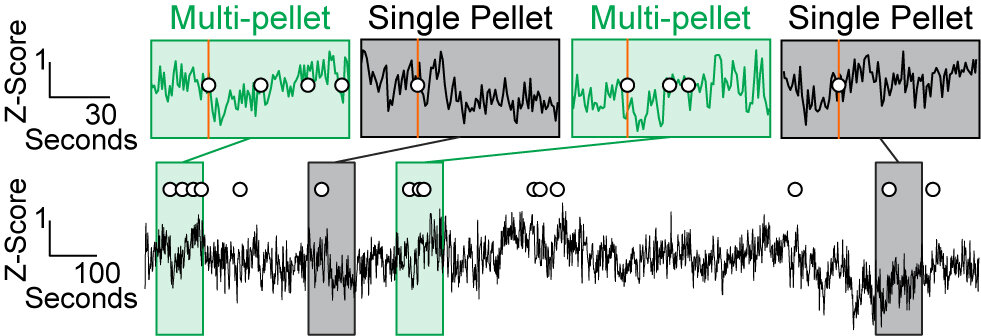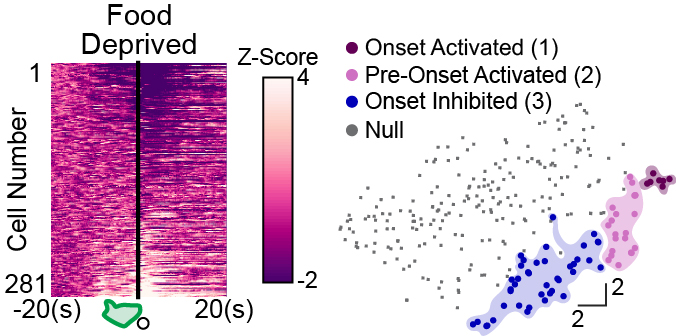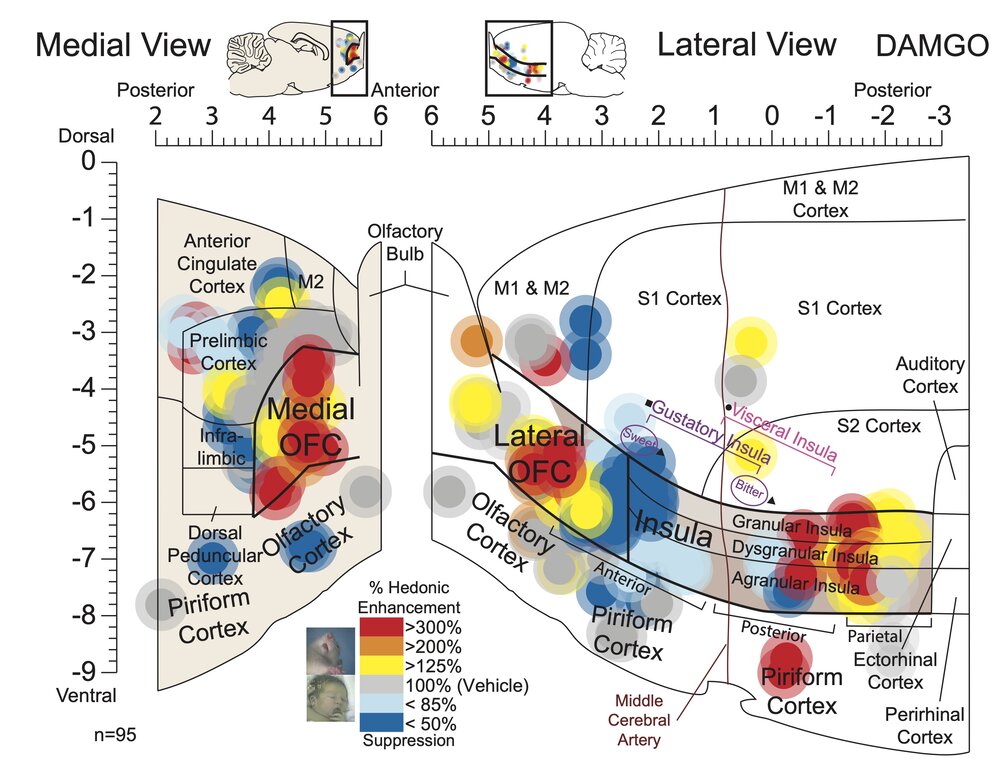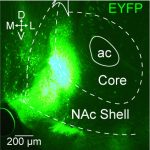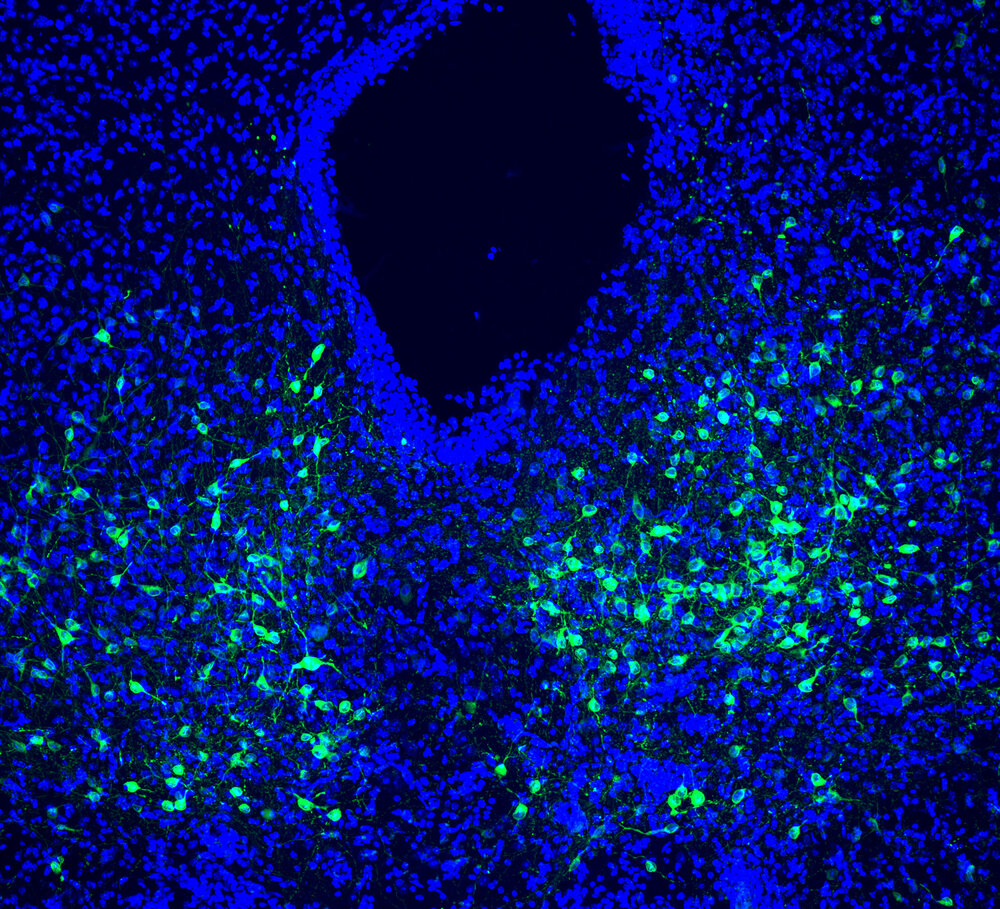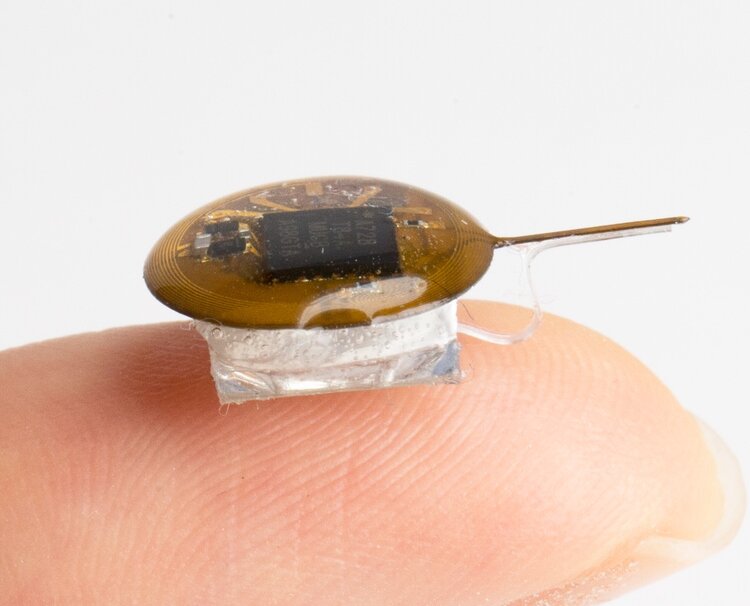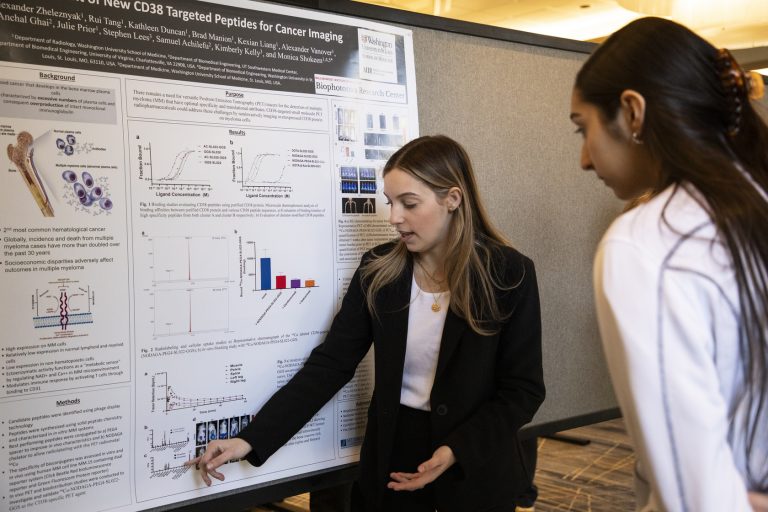Castro Lab
Projects
Affective Hotspots
Convergent research in rodent, non-human primate and human neuroimaging indicate that a distributed network of “affective hotspots” function to generate, amplify or modulate positive and negative affective processing. A principal goal of our research is to better understand the neurobiological mechanisms mediating these psychological processes.
Motivational Opioids
Opioid peptides and their receptors are distributed throughout the brain. Decades of pharmacological research has demonstrated powerful modulatory effects of opioids in across mesocorticolimbic circuits. However, until recently, to ability to target these opioidergic mechanisms with cell-type, temporal, and circuit specificity has remained out of reach. Here, we implement a variety of approaches to identify how distinct opioid circuits dramatically alter motivated behaviors in the brain.
Metabolic Opioids
Beyond the brain, opioids are also heavily expressed in peripheral organs associated with appetite and metabolism, including the stomach, liver, and pancreas. While opioids have long been known to affect metabolic signaling, their underlying mechanisms have gone unresolved. In the Castro Lab, we are using opioid-specialized tools to investigate where, when, and how endogenous opioids act to alter metabolic processing, with a special emphasis on diabetes and obesity relevant mechanisms.
Next-Generation Tools for Neuropeptide Research
The development of novel tools for neuroscience research is fundamental for continued scientific advancement. While many of these approaches function well for fast neurotransmitter or catecholaminergic circuits and systems, adapting them for neuropeptides remains a major hurdle. In the Castro Lab, we specifically work to develop ways to adapt or generate cutting-edge tools for in vivo neuropeptide research.


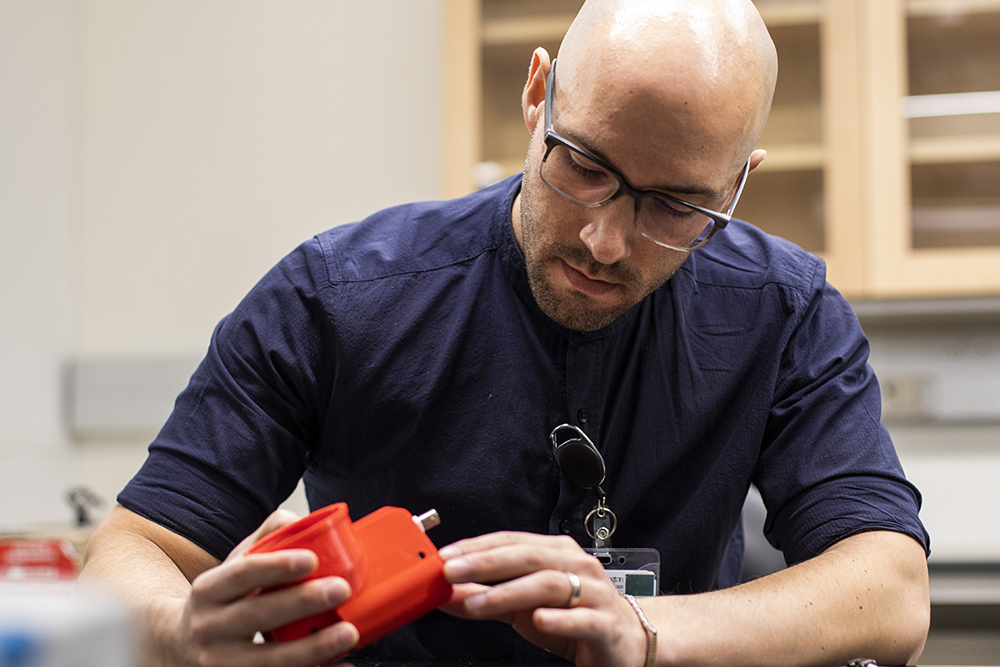
Our People
Led by Daniel Castro, PhD, the lab merges the fields of psychology, neurobiology and technology development to investigate the neural mechanisms of positive and negative affect.

